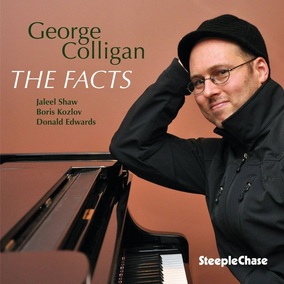
Making up the quartet are Boris Kozlov on bass, Jaleel Shaw on alto sax, Donald Edwards on drums and, of course, George Colligan on piano. Speaking of Kozlov, George calls him “one of the most underrated bassists in jazz” who “brings great enthusiasm to any musical situation.” Edwards, he says, “can play strong without overplaying” having “an open musical mind.” Jaleel Shaw “is gradually getting his due” since he is “now touring with the great Roy Haynes.”
The album opens with “Blue State” written about George’s adopted state of Oregon. The “blue” refers to political liberalism perceived of the state when, fact, only the city of Portland is liberal with the remainder of the state being mostly conservative.
Jaleel Shaw introduces the song on the alto sax as George lays the groundwork underneath. Boris Kozlov wastes no time in displaying why Colligan calls him “underrated.” He works so well with Donald Edwards and Colligan. They have played many times together and this shows immediately. Jaleel is the big surprise. He is a young player that Colligan pushes to the front, allowing us to see the maturity in this splendid musician. This is the sign of things to come both regarding the album and the future of jazz.
Donald Edwards—like Colligan—is a teacher and performer. Edwards is the real deal—a man of clarity and integrity and all of that shows in his playing. “Virtuosity” is the word that comes to mind when describing Donald Edwards. Boris Kozlov is in near-perfect rapport with Edwards throughout the whole recording and it is highlighted here. Obviously, their time together in the Mingus Big Band pays off handsomely for Colligan’s quartet.
The third track is entitled “Missing,” a memorable ballad that Colligan wrote “in about 10 minutes.” With the song coming in at 8:45, it is clear that George wrote it Mozart-style—straight from the heart to the chart.
The four musicians turn in stellar performances. Had George not already come clean that this was basically a sight-reading recording, one would have been convinced that these four had practiced the material in clubs all over for weeks or even months. “Missing” has so much emotion and expression in it that, if indeed sight-read, then these four are all men of heart and honesty. Kozlov picks up the bow for this piece and it is heart-warming and astonishing. George’s piano is soulful and touching and is complemented by the matching soulfulness of Jaleel Shaw.
During a live performance, George once quipped that he prefers short titles to long ones but he had to name the following track “Miriam Edwards’ New York Accent” because that was the one way to describe it. Not quite as long as the Mingus title “The Shoes of the Fisherman’s Wife is Some Jive-Assed Slippers” but you get it. The song was written on his melodica in a London hotel room and was inspired by a British actress who claimed she could mimic 40 English dialects. According to George, the New York accent fell a bit short of the mark but the piece is full of swagger and swing as Jaleel and George trade off remarkably. There is an old-school feel to the composition but it is shot-full of innovative, non-traditional bits.
This in itself is a good description of the entire recording. These young musicians have learned from the past masters but they are not enslaved to them. In deed these young men have a profound respect or even reverence for Monk, Miles and Mingus but these compositions and performances have been informed and infused by so much more; influences of R&B, soul, funk and rock have added so much more color to the palettes of these artists. Jazz is indeed moving from black and white to color.
Kerry Politzer is a brilliant young jazz composer and pianist and the song “Pup Pup” was dedicated to her by her husband George Colligan. In her 2007 CD “You Took Me In,” Kerry had George sitting in on drums which he reprised in her 2010 album “Blue in Blue.” The song is written in 5/4 because Kerry’s Brazillian-influenced style utilizes 5/4 so much.

“The Facts” is a bit of a hard-bop tune that just smokes. It is fiery in itself and the four musicians are absolutely ablaze with it. Colligan is at his most intense and most captivating here. The track requires multiple hearings in order to follow each member who individually contributes their hottest work. I don’t like comparing artists much but the performances turned in here sound like it could have Tyner-Coltrane-Garrison-Elvin Jones. Small wonder that the album is titled after this song.
Written as a study in the Lydian Dominant (or mixolydian) scale, “Lydian Domination” is not just an intellectual exercise or display piece. The slow groove is a monster to play but it sticks in your head like few things ever will.
Just a brief lesson in jazz theory, the Lydian Dominant scale raises the 4th and lowers the 7th. In the key of C, the scale would run C-D-E-F#-G-A-Bb-C. The scale is jazzy on its own merits but Colligan and Company work it brilliantly. It is Kozlov who introduces the scale and Jaleel Shaw works from there. The slow, heavy groove is intoxicating.
“Steppin’ Out” was a big radio hit for Joe Jackson in 1982-83. As George explains, “it wasn’t necessary to arrange it, since it was already pretty jazzy. We just put some swing on it.”
The track opens with Colligan’s chords followed by Edwards rolling in to be quickly joined by Boris and Jaleel. Swing is right! It is rendered as a straight instrumental piece and it works wonderfully. One begins to think that this is how it should have been all along. There is a particularly cool moment at about 2:53 when George intentionally drops time with the left hand. It catches the hearer’s ear and brings a quick smile.
The song and album end in a cool fade-out from bass and drum.
When I first got the CD, I looked at the track listing on the back cover. I was surprised to see four of the tracks as being from a set-list of a Colligan performance in Portland, OR in May of 2012. (The review of that performance is posted here) It is indeed a pleasure to hear these four pieces again albeit with different musicians.
The revelation is that the power and glory are in the compositions. The different musicians added their unique signatures but Colligan’s compositions are brilliant, challenging and suitable to equally talented musicians. His own intelligent and emotional talents create room for the best to play at their very own best.
With George Colligan at the helm, the horizon is not the limit.
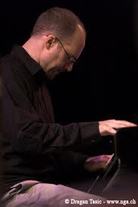
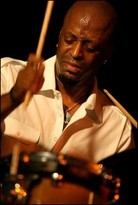
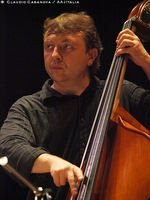
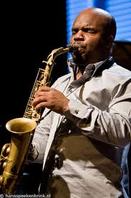
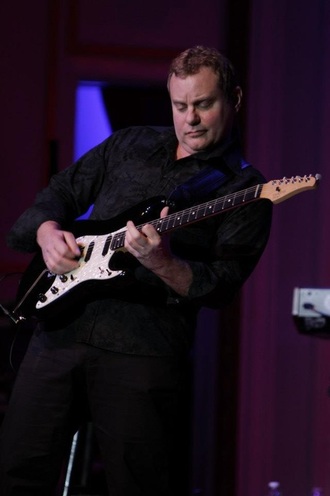

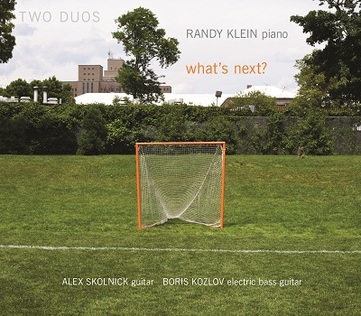
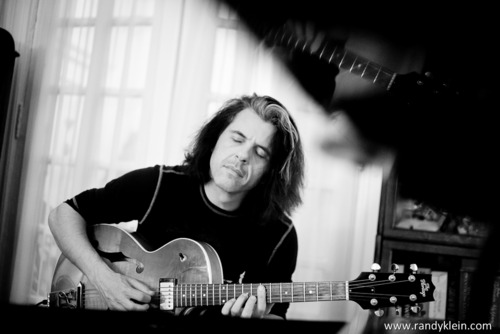
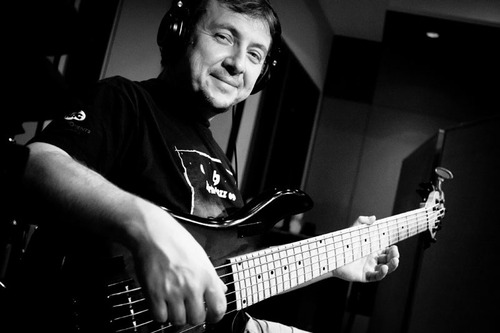

 RSS Feed
RSS Feed
